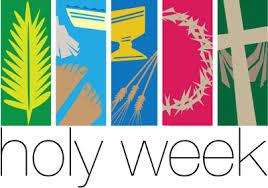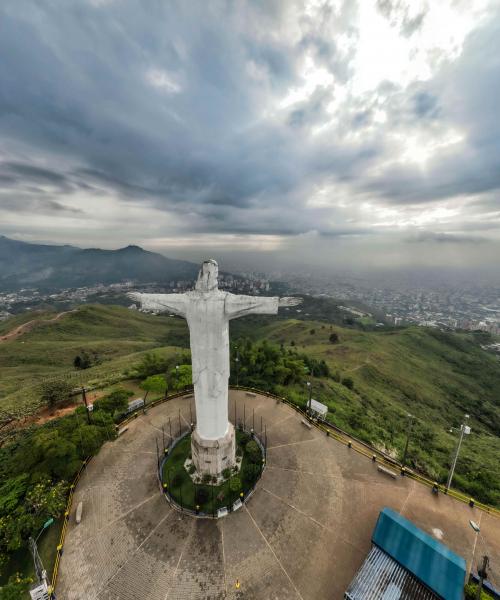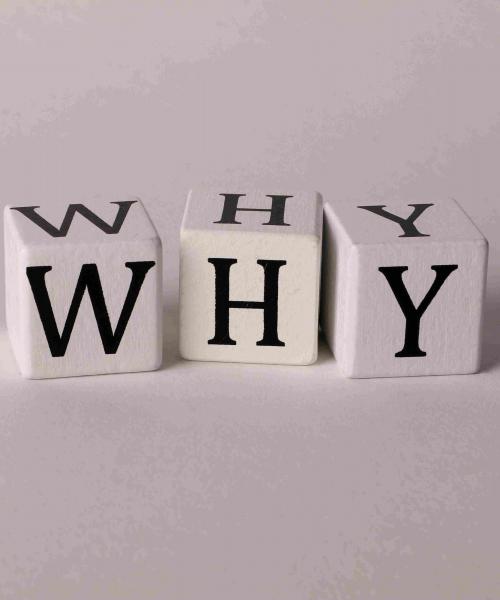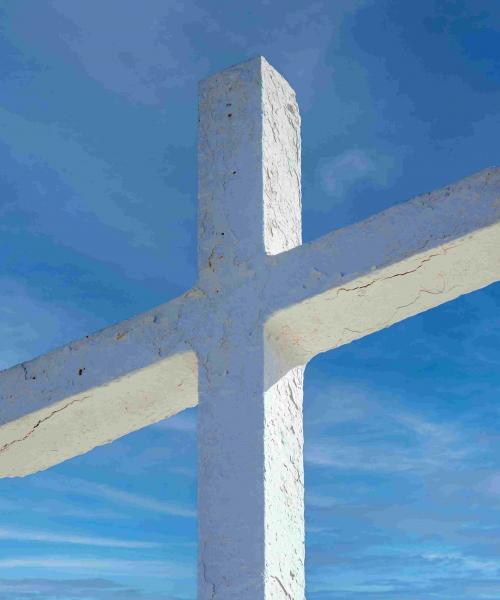
Not a ticker-tape parade
The prophet describes an individual who will stand against trouble - who will “sustain the wary with a word…’
We are happy to see Jesus in this role And we want Isaiah to be talking about Jesus - the steadfast teacher; a determined glint in his eye; not flinching from his “duty.”
But Isaiah is not thinking of Jesus.
Isaiah longs for the day when the principles of heavenly justice might be championed - that the representatives (plural) of God might stand firm in their convictions - against the tyrant; against the oppressor; against all that flies in the face of mercy and hope.
Now it turns out that Jesus would do all that Isaiah had hoped…and more.and so we find it easy to read Isaiah and see Jesus represented…but that’s because we know about Jesus.
The same gift of hindsight makes it a challenge to start our Holy Week experience. The gospels each describe this moment: a spontaneous parade brings Jesus in to the city - Jerusalem - just days before the Passover celebrations begin. The city would have been overwhelmed with pilgrims - visitors from far and wide who have come to celebrate one of the pivotal religious festivals of the year.
Into this environment comes Jesus and his crew. A dozen or so of his closest friends. And many more who were drawn by curiosity or captured by the message and the miracles. Have they come for the celebrations? Are they spoiling for a fight? On the day it might have been difficult to tell.
What Mark’s gospel suggests is a colt will be borrowed to aid in the last stage of what has been a long and tiring journey. Cloaks will be offered - to make the ride comfortable (for both - this is an animal that has never been ridden)
Soft, flattened branches will be waved. People along the road will chant greetings - fight songs, really - verses that invoke God’s ancient promises. Songs of protest. Songs that demand freedom.
This is no ticker-tape parade.
From the Easter side of the story, we talk about a ‘triumphant’ entry. Sure of the outcome, we create an atmosphere that is mostly fiction. We imagine a joyful, jolly reception - but I would propose that this moment was something else.
Our experience of parades and processions are not doing us any favours. We’ve seen heroes met with flowers and frenzy: astronauts - championship teams - Santa Claus…these are the parades that form our opinions of this gospel episode. We have less experience (most of us) with what the gospel describes.
This is what a freedom march looks like.
We have access to similar events in the recorded history of the civil rights movement. The atmosphere around such demonstrations is tense. They were - in most cases - very carefully organized. They marched knowing that the participants were one misunderstanding away from disaster. These were dangerous - potentially fatal - events.
So it might have been on that day in Jerusalem. Tensions high. Prospects, bleak.
Jesus ride an unridden colt - a bold venture on its own - and upon arrival, he doesn’t make a speech, or work the crowd. What does he do?
“Then he entered Jerusalem and went into the temple; and when he had looked around at everything, as it was already late, he went out to Bethany with the twelve.” (Mark 11:11)
He surveys the scene of the coming confrontation. He is on the way to becoming the person described by the prophet. The old story about how God might work is about to meet God at work.
Most of us want a little bit of joy as we start our Holy Week experience. Again, because we know how the story ends, we can comfort ourselves, but the details of Jesus’ betrayal, arrest and execution are too graphic - too awful. Even knowing that some of those who shouted “Hosanna” today will by baying for blood by Friday is too much to contemplate. We want a celebration - something to push us forward to the joy and hope of Easter Day.
But not even Jesus will give away the ending. A quick, quiet survey of the temple; a last look before the showdown. And so we must wait.
To know that God is at work in the world is one thing, but to experience God at work in the world is, perhaps, just like this. A lot of tense, determined, deliberate waiting.
Preparations can be made - Jesus gets familiar with the battleground, and then gathers with his friends. But the final mystery of this week full of mystery comes in God’s own time. No amount of singing and parade-making can bring us to the hope and joy of the empty tomb.
No parade - no protest - can help us avoid the miserable reality of oppression, betrayal, humiliation and death. This is the way of things, and the mystery of God - all knowing, all powerful - choosing to work through our realities rather than around them - is foolishness and obstacle (just as Paul describes) nonetheless, God works.
And this week, we watch, and pray, and hope - as congregations have done for two thousand years - we watch from the midst of a world that does not seem to have changed all that much. We watch - sure that, next Sunday, the tomb will be empty and Christ will be raised. We watch to be reminded that God works, no matter what.
 St. John's
St. John's




